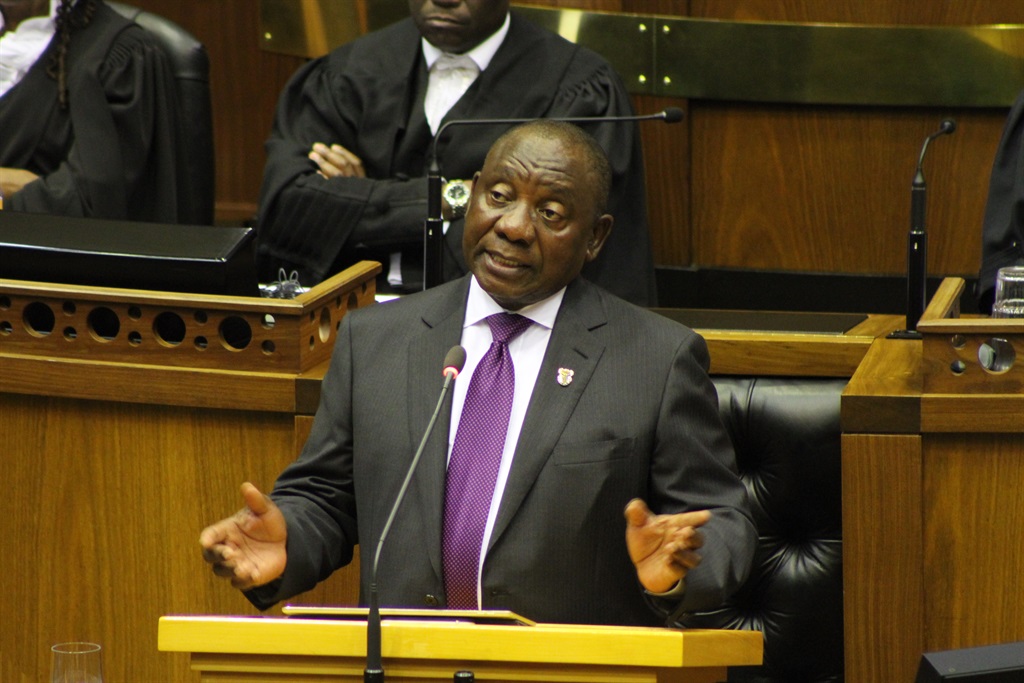
The positive importance of the 2018 state of the nation address, by our republic’s fifth president is arguably beyond dispute. You will be hard-pressed to find many people disputatious with its significance since it hit the correct notes in content and style. It added political mileage to this state of the nation address that its deliverer is, so far, an individual who exudes authority, integrity and competence. The last time people were so objectively enthused about the annual opening of parliament was when Nelson Mandela delivered the first post-1994 state of the nation address.
In that year, Mandela reminded the nation that their roles as civil servants “must be about the liberation of the woman, the emancipation of the man and the liberty of the child”. They were enjoined to work towards the achievement of a “people-centred society of freedom”. The freedom espoused by post-apartheid’s first president, would echo the thesis of fellow Nobel laureate, Amartya Sen, about freedom as development and vice versa. Mandela was clear that his selfless dedication to the struggle was about the pursuit of “freedom from want, freedom from ignorance, freedom from suppression, freedom from fear”.
It is no coincidence then that president Matamela Ramaphosa is seen, in optimistic circles, as something of a Messiah in the mould of Madiba. The jury is out whether the latter can, and will, live up to this elevation as a saviour of South Africa. It is now a truism that Madiba did deliver on his historic mission whose baton was later handed, voluntarily so by him, to his successors who produced, in turn, different results.
If measured on symbolism alone, the 2018 state of the nation address did the offer correct acoustics which have galvanised the nation towards hope and renewal after a decade of “discord, disunity and disillusionment”. He was accurate to identify the marked distrust between public leaders and broader populace and how public institutions have eroded their legitimacy if record-high violent service protests and maladministration are any indication.
President Ramaphosa highlighted his pragmatism – probably honed in his long stint in the corporate world – first, by acknowledging that the governing party cannot deliver on its own and hence his call for summits and working groups and second, in elevating the importance of social compacts which delivered the 1996 Constitution and more recently, the national minimum wage agreement.
Of course, the reliance on commissions and working groups might, to his critics, be interpreted as a sign of executive indecision and policy uncertainty. However, for a society as discordant as we are – in, for example, ideological, racial, class, knowledge, technological spheres – it makes ample sense to initiate platforms where all can come together to hopefully agree on a shared programme of action. Failure to institute such compacts, as bridge-builders, across various sectors is liable to entrench Berlin Walls of disagreements, disunity and possible conflict.
The material conditions for such conflicts to become deep-rooted even more already exist in the high levels of inequality, poverty, violence, corruption, anomie that birth social ills. The point is that social compacts are, debatably, the bedrock of democratic societies. In benign and malign authoritarian regimes, there is no need or expectation to provide platforms to provide consensus-building mechanisms such as enabled by compacts of conventions. What the authoritarian figurehead says becomes law and practice without question. Failure to adhere to the authoritarian edict can lead to unfreedoms like detention or death. Nevertheless, there are exceptions such as meritocratic China and technocratic Singapore where benign authoritarian governments have delivered material freedoms from hunger, poverty, violence, and ignorance.
On the whole though, the significance of the 2018 state of the nation address is welcomed because it is based on positive rebuilding rather than seeking unity through sowing destruction. There is growing speculation that the divisive administration of president Donald Trump is seeking to unify the country through direct military intervention in Venezuela and Iran. As history has demonstrated, there is nothing like open warfare to instill national patriotism and jack up the economy largely dependent, as the reigning superpower currently is, on armaments manufacture and exports.
Fortunately for South Africa, the Ramaphosa presidency has made minimal foreign policy announcements – like cursory statements on the Continental Free Trade and chairing Brics – seeking instead, to focus on domestic matters in non-threatening sectors like agriculture, mining and tourism.
To its discredit through, the 2018 state of the nation address succeeds in channelling the national mood of despair from, for instance, the state capture syndrome but sensibly fails to project into the future what South African society should look like. As an aside, there is scant mention of the National Development Plan in detail since perhaps, the Ramaphosa presidency is more absorbed in undoing the damage of the past decade than in projecting forward to 2030 and beyond.
Possibly, in the coming years, the state of the nation address will move beyond the rudimentary business of fixing problems accountability and governance in government departments and state-owned enterprises. The genius of Franklin Roosevelt’s New Deal was its effectiveness not only in arresting and transcending the 1929 Great Depression but provide a framework for the Unites States of America to become a superpower and civilisation role model after World War II.
After all, it was the deceptively humble Walter Sisulu who counselled that, “It is a law of life that problems arise when conditions are there for their solution”.
Jeffrey Sehume is a researcher in the civil service.




 Publications
Publications
 Partners
Partners








